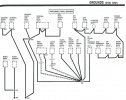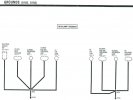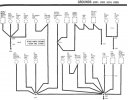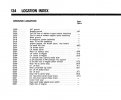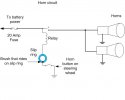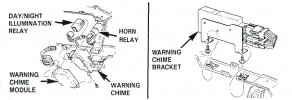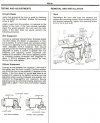I apologize if this has been asked and answered. I am the proud owner of a new to me 1991 GT convertible. I have an issue with my "Instrument Panel Lights". My turn signals and all the warning indicators work fine but the Tach and Speedometer lights do not work. I already verified the fuse is good, replace a few of the bulbs, and installed a new dimmer switch. The problem persists, any ideas?
**UPDATE**
The plot thickens...The horn does not work, the park lights do not come on with the headlight switch, neither do the tail lights or license plate lights. I could replace the headlight switch but honestly at this point I believe it is a wiring issue, more specifically a broken ground somewhere.
**UPDATE**
The plot thickens...The horn does not work, the park lights do not come on with the headlight switch, neither do the tail lights or license plate lights. I could replace the headlight switch but honestly at this point I believe it is a wiring issue, more specifically a broken ground somewhere.
Last edited:

